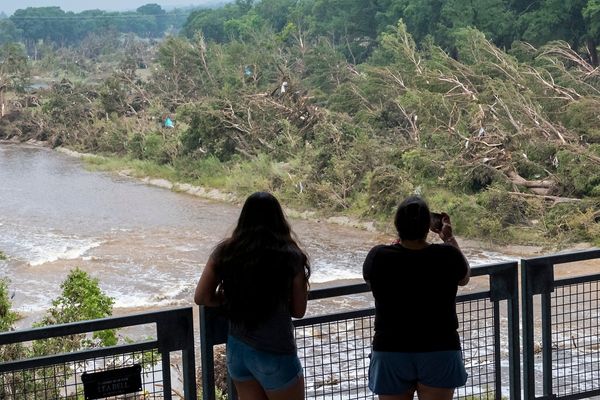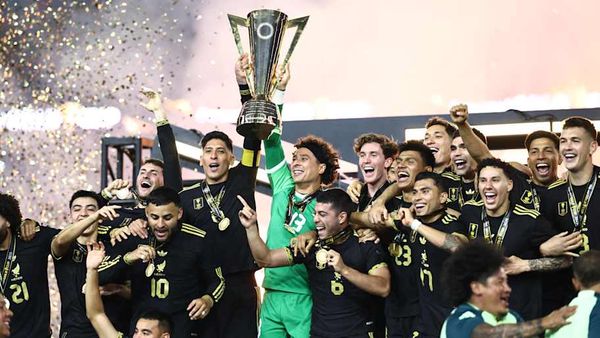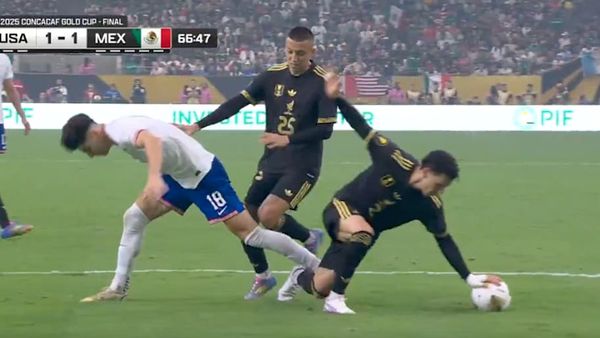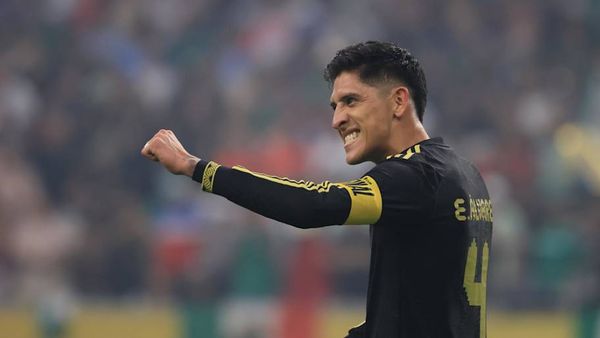This weekend saw the arrival of what should be one of the year’s biggest releases, as the Harry Potter tie-in series’ Wizarding World sequel Fantastic Beasts And The Crimes Of Grindelwald hit theaters ahead of next weekend’s long Thanksgiving holiday. The original eight-film Harry Potter series grossed a staggering $8 billion in global box office, and the inclusion of 2016′s Fantastic Beasts and Where to Find Them brings the overall total to $8.8+ billion. Will the new Fantastic Beasts sequel continue that blockbuster trend, or might we see a case of diminishing returns for a Wizarding World lacking the more famous characters and supporting best-selling novels? There’s a lot of box office data to consider, so buckle up while I dive into some numbers before getting to my full review…
Note: I’m traveling for the holidays, and was unable to post my review before the weekend as I originally intended, so this review is a few days late, but that actually provides a chance to combine my post-opening financial analysis with my review, which works out well because the two will reflect the same points, as it turns out.
The first Fantastic Beasts was the second-lowest grossing film of the franchise, just ahead of 2004′s Harry Potter and the Prisoner of Azkaban, which grossed $796 billion. However, 14 years later, that movie’s gross translates into more than $1 billion in today’s dollars. I’m not big on inflation-adjustment comparisons, since there are so many historical factors and other influences that play into such calculations, but the relative proximity in this case makes it worth pointing out The Prisoner of Azkaban the few million bucks separating that picture and the first Fantastic Beasts release makes it clear we’re looking at a drop in series popularity as the films transition to a post-Potter age.
That said, there’s no version of analysis in which $800+ million isn’t a blockbuster performance, and most of the Harry Potter films played in the $870-950 million range (with the first three films experiencing notable declines from film to film, even while still performing at blockbuster levels), so topping $800 million without the aid of the original cast and with few of the familiar characters beloved by fans is a clear win. Also consider the fact Fantastic Beasts didn’t have the benefit of a best-selling novel series to prep audiences and expand the fanbase for the new story arc, making the results are even more impressive.
The counterpoint to this is, of course, they had 18 years of eight film releases plus two decades of best selling novels providing plenty of boost for a tie-in series, so when all is said and done it wouldn’t be unreasonable to say the obstacles and benefits are a wash, which still leaves us with a first Fantastic Beasts gross of $800+ million gross falling close to the usual range of performance, even if it was on the low end of that range.
Fantastic Beasts and the Crimes of Grindelwald hopes to improve upon the previous picture’s numbers, now that audiences and the global fanbase have been introduced to the new primary cast and have an understanding of the story foundations. Unfortunately, the $62 million domestic opening this weekend was 16% below the $74 million opening of the first Fantastic Beasts two years ago. The better news is that domestic plus international combined for a $253 million bow, compared to $218 million for its predecessor, but keep in mind the previous debut included 63 foreign markets compared to the latest installment’s 79 foreign markets. The first film also didn’t include China in its first weekend, while the sequel did.
So keep in mind the big jump in foreign totals is thanks largely to the fact The Crimes of Grindelwald has 25% more markets than Where to Find Them, including China which account for the entirety of that increase. China in fact was good for only $37 million for the sequel, significantly lower than the $51 million second-weekend cume of Venom, and almost 10% lower than Where to Find Them’s China opening.
This isn’t to rain on The Crimes of Grindelwald’s parade, since obviously a $253 million worldwide opening is impressive and provides lots of room to grow, and that opening included plenty of markets demonstrating increases over the predecessor’s opening tallies. The film will surely pass $700 million worldwide and has a good shot at another $800 million global total. But we can’t ignore the $200 million budget, and the $100-120+ million marketing, nor can we deny that it will still probably fall short of Where to Find Them’s total, making it the second-lowest overall performer in the Wizarding World franchise — and the lowest of all, if we adjust just a tad for inflation (remember the earlier point about The Prisoner of Azkaban).
There are several reasons the numbers turned out the way they did for both Fantastic Beasts films, actually, and those points are relevant to my own reaction to the new film. So read on for my full review — and fair warning, I will not reveal any spoilers or details, but to talk about the film and the reasons for my reaction, I have to mention a broad and vague point about the film’s inclusion or lack of things like twists or
There’s a lot to admire about Fantastic Beasts and the Crimes of Grindelwald. Director David Yates always impresses with his world-building and large casts, huge eye-popping visuals, tremendous action sequences, and ability to satisfyingly mix tones and moods in stories that rely on equal parts light-hearted humor, solemnity and dread, and sentimentalism. Whatever else I think of The Crimes of Grindelwald, there’s no denying the compelling artistic vision behind it. That includes J.K. Rowling as well, of course, who envisioned and wrote the story in all of its complexity and wildly imaginative details.
Likewise, the cast embrace the absurdity of their characters and the events swirling around them, performing as if they’re in front of a large audience of young children who squeal with glee at each new development. Even Johnny Depp — whose past several years making films in which he wears layers of makeup for quirky all-too-similar characterizations had many of us worrying we’d see a lot of scenery-chewing in The Crimes of Grindelwald — turns in a performance closer to his Black Mass role than expected, mostly restrained and on point.
The visual effects are glorious and lovely, as are the sets and costumes. While there are many shadows and washed-out colors in a lot of sequences, it usually serves the needs of the scenes and reflects the narrative well. We don’t get as many “fantastic beasts” this time around compared to the prior series entry, but that’s to be expected in light of the story.
So there are plenty of things for fans to admire in the Crimes of Grindelwald. Unfortunately, one of those things is not the story, or perhaps I should say not the plotting.
Put simply, I hate it when a film’s story mostly relies on a few characters failing/refusing to say a few simple things that would clear up confusion and solve most of a film’s conflicts at the outset, making much if not most of the subsequent events unnecessary. I also hate films that rely too much on a couple of big exposition dumps in between pointless running around from place to place without resolution. And the truth is, the Crimes of Grindelwald is undermined by all of these problems. Add in a huge out-of-nowhere reveal lacking any dots to connect that might hint at or explain said mystery, and we are left with a movie that hasn’t earned its own existence.
Part of the brilliance and fun of the Harry Potter series was the fact the reveals, even when we didn’t expect them, felt earned, because the story gave us hints — at the very least, hints that what we thought we knew might disguise a larger truth, or that characters seemed to have secrets within secrets. It never felt like a pure distraction or a cheat set up simply to make the eventual reveal feel like a “twist.” Nor did story developments feel as if they were created at the last minute in the writing process, or like a performer was literally improving dialogue on the spot to make up a reveal because there was no plan in place to settle a mystery.
But the Crimes of Grindelwald has several such moments, with one in particular leaving hardcore Harry Potter fans at my screening flustered and angry as they walked out. I’ve not read the books, but I’ve seen all of the films, so I was pretty sure I wasn’t alone in some of my confusion about the events and characters, and I asked others from the audience whether I was mistaken in thinking the film lacked setup and foundational elements that would’ve better supported these aspects of the story. They confirmed my belief that there was little setup for the reveals, so if more hints and basis for those things can be found in the books, the films failed to adequately translate it to the screen, apparently.
What makes it worse is, there was no reason for the reveal to have to feel that way — with two films totally four hours and 35 minutes of story, there were ample opportunities to sprinkle real hints and ah-ha moments to set everything up and provide a satisfactory experience for the audience.
And one big benefit from a better setup for the reveals would be this: it would necessitate a closer tie-in to many of the supporting Harry Potter characters and the Hogwarts school right from the start of the new narrative (i.e. the first Fantastic Beasts movie), creating more sense of legacy and a much firmer point of entry for fans of the original series, as well as for mainstream audiences who aren’t necessarily readers of the book series or hardcore Potter fans.
Granted, the Crimes of Grindelwald includes (finally) glimpses of the Hogwarts connective tissue and carries over some of the Harry Potter supporting characters, but it is limited and for the most part feels too distanced from the first series of films and novels. Even the inclusion of Dumbledore is within certain boundaries and lacking in the level of connective tissue that I think would’ve better served the larger Fantastic Beasts narrative and would’ve worked better for audiences.
I’ll also mention something else which I feel serves as an obstacle to this new set of movies. While I understand Rowling’s desire to let the Fantastic Beasts series stand somewhat on its own without a series of novels on which to expand the fanbase or any overt Harry Potter title references, and while I see the potential benefits of developing a sort of “spinoff” series tied into the Harry Potter franchise but with its own new branding, I think ultimately it was a mistake.
A novel series would continue the Potter legacy, provide foundational background knowledge for viewers, and would make the new characters feel more familiar to audiences. It would also help formulate the complex narrative in a more nuanced way that could avoid some of the stumbles and confusion in these new films. And a branding title perhaps like Harry Potter’s Wizarding World (just for example) would’ve gone a long way toward a more firm and compelling branding that instantly stood out and attracted the built-in audience for the films. I realize the marketing spelled out that these films are part of a Wizarding World from the creators of Harry Potter and that it’s wizards and elements generally recognizable as linked to the previous films and books, but it requires overt voice-over and subtitle references to tell people about those connections, without them being instantly apparent in the film’s own title and brand itself.
I’d also say a big mistake was made in creating a story with mostly older actors instead of kids and young characters at the forefront, which creates a very specific difference between the first series and this new series. Newt, Porpentina, Jacob, Queenie, Percival, Leta, and other main characters and supporting characters — and their primary arcs, of course — are squarely adult and intended mostly for fans who grew up with the Potter books and films, and for parents who bring their kids. But the kids themselves have little in the way of proxy representatives in the story, so new fans and children who have been recently introduced to the Harry Potter books and films don’t get to see many people on screen who represent the children’s perspective. It’s a reversal of the framing of the Harry Potter stories, with their mostly child/youth characters and cast surrounded by a handful of notable adult supporting characters, and I feel that reversal undercuts way these films resonate with viewers and how they build and expand the fanbase.
The combination of no direct title references to Harry Potter, no notable carry-over characters in the first Fantastic Beasts film, no Hogwarts to provide a continuation of the backdrop and context from the Harry Potter movies, no novels released prior to the new films, and an ensemble cast of primarily adult actors and characters at the outset all hampered the Fantastic Beasts movies in specific ways, while each individual obstacle also held its own unique problems for the series. The good news is, it’s easy to see these problems and make some course-corrections that won’t disrupt the plans for the overall story, if Rowling and the studio want to do it.
To circle back for a moment to some of the positive aspects of the Crimes of Grindelwald, there are several great sequences that work well and rekindle the sense of awe and wonder, the sheer joy and fun, we all loved in the Harry Potter films — and which, to its credit, Where to Find Them captured often enough to overcome its flaws and be a good film. There are also some interesting social themes at play (albeit awkwardly defined at times), which I hope future installments utilize more (and more effectively). I suspect the sheer technical qualities apparent in the production, the better moments and bits that do work, and the excitement of another chapter in the saga will be enough to win over many fans and general audience members, so I freely admit a lot of you reading this will no doubt like or love the film.
It’s also undeniable that the Crimes of Grindelwald has a consistently grand scale that benefits tremendously from a big-screen experience — plenty of wide shots, big visual effects moments, sweeping landscapes and cityscapes, and an opening action sequence that alone is probably worth the price of admission even if you hate the rest of the film. I didn’t see it in 3D, but it’s clear you’ll get your money’s worth if you opt for that premium experience, too.
But I’m betting at least a few crucial bad choices will cause some distress among even the most otherwise enthusiastic fans of this film. There’s a whole character arc, for example, culminating in a desperate decision that winds up pointless and completely at odds with the character’s journey and motivations up to that point — if you choose a path to reach a specific goal, it’s senseless to remain on that path once you learn it actually leads away from your goal. Add in the betrayal of the powerful emotional drive involved, plus the fact there’s a glaringly obvious stronger way to portray the same arc without the inconsistencies and weak characterization, and it’s surely going to stand out as a stain on the quality of the film for even the most forgiving fans.
Lastly, there is a mindless and rather boring sudden action sequence near the end that is seemingly thrown in out of concern the real climax isn’t quite action-oriented enough. For those like me who found themselves constantly let down by the narrative choices, this was a final disappointment that drove home all other complaints about the film — unnecessary, lacking in motivation, easily avoided, and mostly just filler to disguise a story reliant on people not saying or doing simple obvious things at the start of the story.
I wanted to like Fantastic Beasts and the Crimes of Grindelwald, and went into the screening expecting to enjoy it. I wish I had, and I hope the next chapter fixes the problems that sank this picture. There’s still tremendous potential for this to expand and become a wonderful new series under the Wizarding World banner.
Box office figures and tallies based on data via Box Office Mojo , Rentrak, and TheNumbers.
Follow me on Twitter, on Google+, and on Quora. Read my blog.







